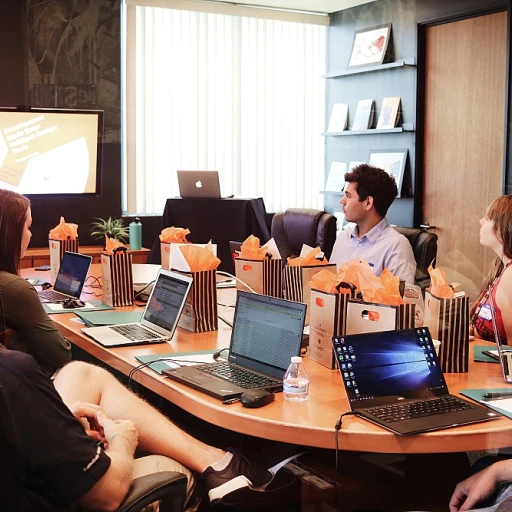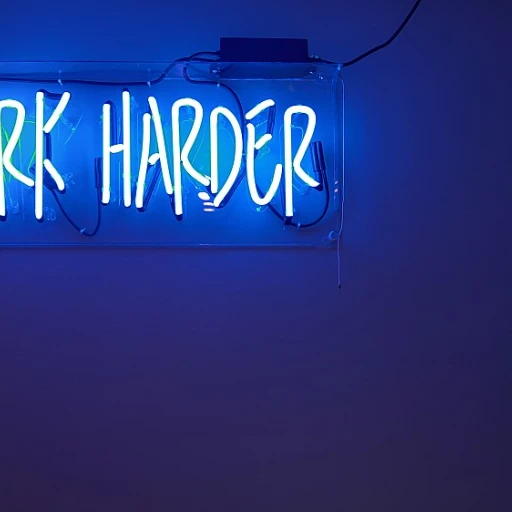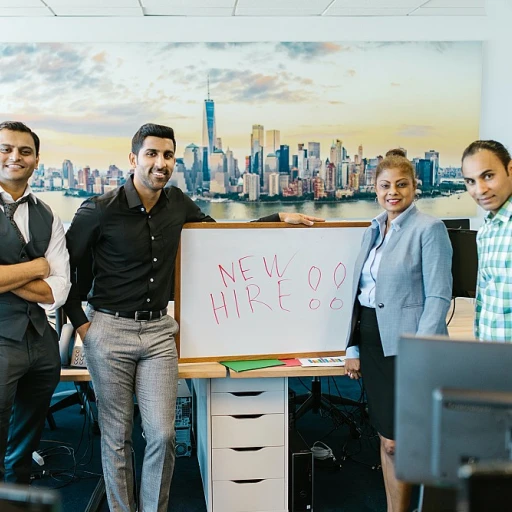
Understanding centralised HR in the interview process
Centralized HR: Shaping the Interview Experience
Centralized human resources (HR) is a model where key HR functions, such as recruitment, data management, payroll benefits, and performance management, are managed by a central team rather than being distributed across individual departments or locations. This approach contrasts with decentralized recruitment or decentralized staffing, where each business unit or location manages its own hiring process and HR activities. Understanding how centralized HR influences job interviews is essential for candidates and organizations aiming to optimize their recruitment process and employee experience.
Organizations that centralize HR functions often seek better consistency, cost savings, and compliance across their hiring practices. Centralized recruitment allows companies to standardize processes, leverage data for decision making, and ensure that all candidates experience the same level of professionalism and fairness during interviews. This model can also support long term business goals, such as strengthening the employer brand and improving employee engagement.
On the other hand, a decentralized approach may offer more flexibility and responsiveness to local needs, but it can lead to variations in candidate evaluation and management practices. Companies must weigh the benefits of each operating model to determine which aligns best with their organizational goals and culture.
- Centralized HR: Central team oversees recruitment, data, and processes for the entire organization.
- Decentralized HR: Individual departments or locations manage their own HR activities and hiring process.
- Hybrid models: Some organizations blend centralized and decentralized elements to balance consistency and flexibility.
Centralizing functions like recruitment and data management can streamline the interview process, but it also introduces new challenges in communication and employee engagement. The impact of these changes will be explored further, including how technology supports centralized HR and how candidates can best prepare for interviews in this environment.
For a deeper look at how team structure influences recruitment success, explore effective MSP sales team structure best practices.
Consistency in candidate evaluation
Why Consistency Matters in Candidate Evaluation
Centralized HR models have a significant impact on how organizations evaluate candidates during the recruitment process. When a central team manages the hiring process, it leads to more consistent evaluation standards across the company. This consistency is crucial for ensuring fairness, compliance, and a strong employer brand.
Key Differences: Centralized vs. Decentralized Approaches
In decentralized recruitment, individual departments or business units often make their own hiring decisions. This can result in varied hiring practices, inconsistent data management, and different levels of employee experience. By contrast, centralizing functions such as recruitment and performance management helps organizations apply the same criteria and processes to all candidates, regardless of department or location.
- Standardized Processes: Centralized recruitment ensures that every candidate goes through the same steps, from initial screening to final interviews. This reduces bias and supports better decision making.
- Data-Driven Decisions: Centralized data management allows HR teams to track and analyze recruitment metrics, leading to continuous improvement in hiring practices and long-term cost savings.
- Compliance and Fairness: A unified approach helps organizations stay compliant with employment laws and regulations, reducing the risk of legal issues.
Benefits for the Organization and Employees
Consistency in candidate evaluation brings several benefits to both the business and its employees. For the company, it means a more reliable recruitment process, better alignment with organizational goals, and improved employee engagement. For candidates, it creates a transparent and predictable experience, which can enhance the organization's reputation as an employer of choice.
| Centralized Model | Decentralized Model |
|---|---|
| Uniform evaluation criteria | Varied evaluation criteria |
| Central team oversight | Department-led decisions |
| Consistent data management | Fragmented data processes |
| Stronger employer brand | Inconsistent candidate experience |
For more insights on building effective teams and optimizing your recruitment process, check out this guide on best practices for team structure.
The role of technology in centralised HR interviews
Technology’s Influence on Interview Efficiency and Consistency
Centralized HR models are increasingly leveraging technology to streamline the recruitment process. By centralizing functions like data management, scheduling, and candidate evaluation, organizations can create a more consistent and efficient hiring process. Digital platforms allow the central team to manage large volumes of candidate data, ensuring that every applicant is assessed using the same criteria and processes. This approach not only supports compliance but also helps maintain a strong employer brand by providing a uniform candidate experience across the company.
- Data Management: Centralized systems enable better tracking of candidate progress, interview feedback, and hiring decisions. This data-driven approach supports long-term improvements in recruitment and performance management.
- Process Automation: Automated scheduling, standardized interview questions, and digital assessment tools reduce manual work for HR teams. This leads to cost savings and allows employees to focus on higher-value tasks.
- Improved Employee Experience: Candidates benefit from clear communication and timely feedback, which is often lacking in decentralized recruitment models. Technology ensures that every step of the process is transparent and well-documented.
Organizations adopting a centralized operating model often see benefits in decision making and compliance, as technology helps enforce consistent hiring practices. However, it’s important to balance these efficiencies with a human touch, ensuring that candidates feel valued throughout the process. For more insights on how professionalism and effective training can enhance the interview experience, explore this resource on mastering professionalism in the workplace.
While centralized recruitment offers many advantages, it’s essential for HR teams to continuously review their technology and processes to adapt to changing business needs. This ongoing evaluation helps maintain a competitive edge in talent acquisition and supports employee engagement across the organization.
Communication and feedback in a centralised system
Clearer Communication Channels and Structured Feedback
Centralized human resources models often reshape how communication and feedback are managed during the recruitment process. When a central team oversees the hiring process, candidates typically experience more standardized communication. This means updates about interview stages, next steps, and decisions are delivered in a consistent manner, reducing confusion and uncertainty. Organizations using a centralized approach benefit from:- Unified messaging, ensuring all candidates receive the same information about the company, role, and recruitment process
- Streamlined feedback processes, where interviewers follow set guidelines for providing constructive input
- Improved data management, allowing for better tracking of candidate progress and feedback history
Enhancing Candidate Experience and Compliance
Centralizing functions like communication and feedback also supports compliance and fairness. By following a structured process, organizations reduce the risk of bias or inconsistent evaluation. This approach aligns with broader performance management and employee engagement strategies, as it demonstrates a commitment to transparency and equal opportunity. For candidates, knowing what to expect at each stage of the hiring process can ease anxiety and help them prepare more effectively. Clear feedback, whether positive or constructive, also supports long term career development and reflects well on the company’s operating model.Balancing Efficiency with Personalization
While centralized recruitment brings many benefits, it’s important for organizations to avoid becoming too rigid. Employees and candidates still value a personal touch. The best centralized HR teams find ways to balance efficiency with genuine, human communication. This can involve personalized messages, timely responses, and opportunities for candidates to ask questions or provide feedback on their experience. Ultimately, the way communication and feedback are handled in a centralized system can influence not just the recruitment process, but also employee engagement, retention, and the overall perception of the organization’s management practices.Preparing for interviews with centralised HR
How to Get Ready for a Centralized HR Interview
Preparing for an interview with a centralized HR team is different from what you might experience in a decentralized recruitment process. Centralized human resources functions mean that the hiring process, data management, and decision making are handled by a central team, often using standardized processes across the organization. Here’s how you can approach your preparation:- Understand the Company’s Operating Model: Research how the organization manages its HR functions. Centralized recruitment often means consistency in processes, compliance, and performance management. Knowing this helps you anticipate the structure of your interview and the types of questions you may face.
- Familiarize Yourself with Standardized Processes: Centralized HR teams use set procedures for evaluating candidates. Expect structured interviews, standardized questions, and possibly assessments that focus on both technical and behavioral competencies. Reviewing the company’s published hiring practices can give you an edge.
- Prepare for Data-Driven Questions: Centralized HR relies heavily on data to make decisions. Be ready to discuss your achievements with specific metrics, and show how your experience aligns with the organization’s goals for cost savings, employee engagement, and long-term business benefits.
- Showcase Adaptability: Organizations with centralized functions value employees who can thrive in a structured environment. Highlight examples from your past roles where you adapted to new processes or contributed to improving team performance.
- Practice Clear Communication: Since communication and feedback are streamlined in a centralized model, demonstrate your ability to communicate clearly and professionally. This will be noticed during the interview and is often part of the evaluation process.
- Ask Insightful Questions: Use the opportunity to ask about the company’s approach to centralized versus decentralized staffing, how they manage employee experience, and what benefits employees see from the centralized model. This shows your interest in the organization’s management philosophy and your understanding of HR trends.
Checklist for Centralized HR Interview Preparation
| Preparation Step | Why It Matters |
|---|---|
| Research the organization’s HR structure | Helps you tailor your answers to the company’s recruitment process |
| Review job description and company values | Aligns your experience with the employer brand and expectations |
| Prepare data-driven examples | Demonstrates your impact and fits the data management focus |
| Practice behavioral interview questions | Centralized teams often use these for consistency in evaluation |
| Plan questions about the centralized model | Shows your engagement and understanding of HR management trends |
Common challenges and how to navigate them
Addressing Common Obstacles in Centralized HR Interviews
Centralized HR models bring many benefits to the recruitment process, but they also introduce unique challenges for both candidates and organizations. Understanding these hurdles can help job seekers and HR professionals navigate the hiring process more effectively. Potential Challenges in Centralized Recruitment- Impersonal Experience: Centralizing functions can sometimes make the interview process feel less personal. Candidates may interact with a central team rather than the specific department or team they would join, which can impact the overall employee experience.
- Slower Decision Making: With centralized management, decision making can be slower due to multiple layers of approval and standardized processes. This can delay feedback and prolong the recruitment process.
- Data Overload: Centralized data management improves compliance and consistency, but it can also lead to information overload. Candidates might feel like just another number in the system, and HR teams may struggle to personalize communication.
- One-Size-Fits-All Approach: Centralized HR often uses uniform hiring practices across the organization. While this supports fairness and compliance, it may not always address the unique needs of different business units or teams.
- Limited Flexibility: Compared to decentralized staffing, a centralized approach can be less adaptable to specific roles or local requirements, which may affect the employer brand in certain markets.
Strategies for Navigating Centralized HR Challenges
- Proactive Communication: Stay engaged with the HR team throughout the process. Ask questions about timelines, next steps, and the structure of the recruitment process to set clear expectations.
- Personalization: Make an effort to connect your experience and skills to the organization’s values and business goals. This helps you stand out in a process that may otherwise feel standardized.
- Preparation: Understand the company’s operating model and how centralized recruitment fits into their broader HR strategy. This knowledge can help you tailor your responses and demonstrate your understanding of their processes.
- Follow-Up: If feedback is delayed, don’t hesitate to follow up politely. Centralized systems can sometimes slow down communication, but persistence shows your interest and professionalism.
- Leverage Data: Use any available information about the company’s recruitment process, performance management, and employee engagement initiatives to prepare thoughtful questions and demonstrate your research.













